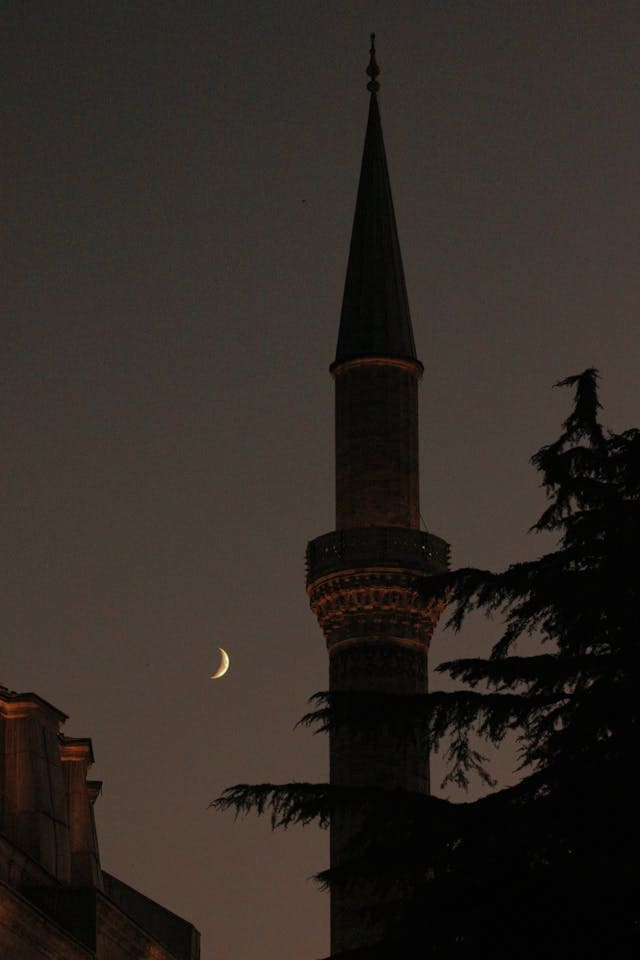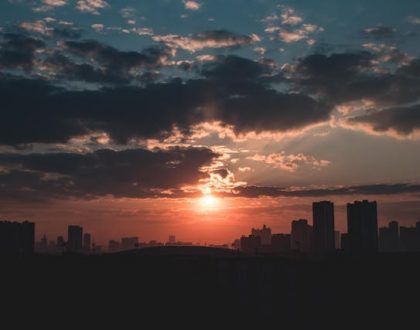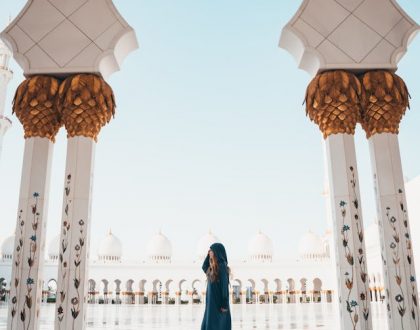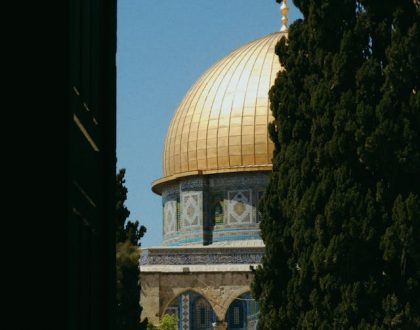Laylatul Qadr – attain inner and outer purity

Abu Hurayrah (may Allah be pleased with him) reported that the Prophet (ﷺ) said,
وعن أبي هريرة رضي الله عنه، عن النبي صلى الله عليه وسلم قال: “من قام ليلة القدر إيمانا واحتسابًا غفر له ما تقدم من ذنبه”. ((متفق عليه)) .
“Whosoever performs Qiyam during Laylat-ul-Qadr (Night of Decree), with Faith and being hopeful of Allah’s reward, will have his former sins forgiven.” [Bukhari and Muslim]
Tonight is 27th Ramadan and might be Laylatul Qadr as day is the collection of authentic narration point to this night as Laylatul Qadr. Every year, the fortunate amongst us have survived to witness Laylatul Qadr, as many did not make it.
Allah Almighty mentioned Laylatul Qadr in Surat al Qadr, which is mis translated as Night of Power in many translations. A good translation can be reversed back into its original language, but The Night of Power in Arabic would be Laylatul Quwa, but in Surat ad Dukhan, Allah called it a Blessed Night, Laytul Mubarakah.
By the clear Book.
Surely We sent it down on a blessed night, surely We have (always) been warning. [44:2-3]
The night is special because the Quran was revealed at that specific time, revealed to the Prophet Muhammad (peace be upon him), who was special and carried to him by Jibril, who was special and our Ummah which carried the Quran, became the best ummah ever to have been introduced to humanity, because we are honoured by the Quran. Whoever carries the Quran is special, as the Prophet (peace be upon him) said the People of the Quran are the people of Allah and the Special People of Allah.
Anas bin Malik (may Allah be pleased with him) said that the Messenger of Allah (peace be upon him) said:
‘Allah has His own people among mankind.’ They said: ‘O Messenger of Allah, who are they?’ He said: ‘The people of the Qur’an, the people of Allah and those who are closest to Him.’ [Ibn Majah]
So no wonder Laylatul Qadr is special because it is the commemoration of the final and complete revelation sent by Allah to humanity, through Jibril to the Prophet and all humanity until the Day of Judgement.
He honoured humanity by sending His final words to abide by. Laylatul Qadr is full of blessings and nafahat, indeed your Lord has special gifts (nafha is gift). Allah has gifts all year round, so seek them and Laylatul Qadr is the concentration of those gifts.
Anas ibn Malik reported that the Messenger of Allah (peace be upon him) said,
“Do good deeds in the time that you have and take advantage of the moments of Nafahat (gifts) from the mercy of Allah. Verily, Allah has moments of Nafahat from his mercy that he sends upon whomever he wills among his servants. Ask Allah to cover your faults and protect you from your anxieties.” [Tabarani in al-Mu’jam al-Kabīr]
Aisha was excited about it and asked the Prophet (peace be upon him) what she should say in the famous narration:
وَعَنْ عَائِشَةَ رَضِيَ اللَّهُ عَنْهَا قَالَتْ: قُلْتُ: يَا رَسُولَ اللَّهِ أَرَأَيْتَ إِنْ عَلِمْتُ أَيُّ لَيْلَةٍ الْقَدْرِ مَا أَقُولُ فِيهَا؟ قَالَ: ” قُولِي: اللَّهُمَّ إِنَّكَ عَفُوٌّ تُحِبُّ الْعَفْوَ فَاعَفُ عَنِّي “. رَوَاهُ أَحْمد وَابْن مَاجَه وَالتِّرْمِذِيّ وَصَححهُ.
A’isha said she asked God’s messenger to tell her what prayers to say on Laylat al-Qadr if she knew which night it was, and he told her to say, “O God, You are forgiving and loves forgiveness, so forgive me.” [Ahmad, Ibn Majah, and Tirmidhi]
With all the gifts on offer, why seek forgiveness? This is priority number 1. If you are forgiven, then you become one of the people of Jannah. The Prophet did not say you are not allowed to ask for health, well-being, good offspring or halal rizq, but he drove our attention to our biggest priority – Allah’s forgiveness. This means we should do every action that brings Allah’s forgiveness, not just ask for it. Do not commit all sorts of fraud and ask for forgiveness, rather make your actions in line with what pleases Allah to attain His forgiveness. Without doubt, if your actions are the actions that please Allah, He will forgive you, but if your actions are the opposite of what pleases Allah, then no matter how much you ask for forgiveness, your ask is hollow. When you do lip service, it is not genuine. You have to be genuine and do what is required to get Allah’s forgiveness. Let’s delve into what is forgiveness. It is to have a clean slate. To be pure of sins.
This is why the Prophet (peace be upon him) obligated Zakat al Fitr in Ramadan, because it is a purification for your shortcomings in Ramadan.
Ibn ’Abbas (may Allah be pleased with him) narrated,
وَعَنِ اِبْنِ عَبَّاسٍ رَضِيَ اَللَّهُ عَنْهُمَا قَالَ: ” فَرَضَ رَسُولُ اَللَّهِ - صلى الله عليه وسلم -زَكَاةَ اَلْفِطْرِ; طُهْرَةً لِلصَّائِمِ مِنَ اَللَّغْوِ, وَالرَّفَثِ, وَطُعْمَةً لِلْمَسَاكِينِ, فَمَنْ أَدَّاهَا قَبْلَ اَلصَّلَاةِ فَهِيَ زَكَاةٌ مَقْبُولَةٌ, وَمَنْ أَدَّاهَا بَعْدَ اَلصَّلَاةِ فَهِيَ صَدَقَةٌ مِنَ اَلصَّدَقَاتِ”. رَوَاهُ أَبُو دَاوُدَ, وَابْنُ مَاجَهْ, وَصَحَّحَهُ اَلْحَاكِم ُ
‘The Messenger of Allah (ﷺ) enjoined Zakat-ul-fitr on the one who fasts (i.e. fasted during the month of Ramadan) to purify him from any indecent act or speech and for the purpose of providing food for the needy. It is accepted as Zakah for the person who pays it before the Eid prayer and it is Sadaqah (i.e. voluntary charity) for the person who pays it after the Eid prayer.’ [Abu Dawud and Ibn Majah]
Allah is pure and loves purity and wants us to be pure.
Abu Hurayrah (may Allah be pleased with him) reported that the Messenger of Allah (peace be upon him) said,
“O people, Allah is purely good, and He only accepts what is purely good. [Muslim]
Therefore we seek inner purity by asking for forgiveness and we aim for outer purity by performing what is obligatory, such as praying, fasting and giving charity etc.
This is our opportunity to attain forgiveness as it is the night that Allah frees so many from Hellfire. We ask Allah to free all of us, and our loved ones from Hellfire.
Jabir (may Allah be pleased with him) narrated that the Messenger of Allah (ﷺ) said:
عَنْ جَابِرٍ، قَالَ قَالَ رَسُولُ اللَّهِ ـ صلى الله عليه وسلم ـ “ إِنَّ لِلَّهِ عِنْدَ كُلِّ فِطْرٍ عُتَقَاءَ وَذَلِكَ فِي كُلِّ لَيْلَةٍ ” .ابن ماجه.
At every breaking of the fast Allah has people whom He frees (from the Fire), and that happens every night.” [Ibn Majah]
If we visualise how to be free from Hellfire, it is not about having a VIP ticket to do whatever you want and then jump the queue to get into Jannah, it means, as scholars commented, that Allah will enable you to stay on the straight path so you can be among the people of Jannah.
Many people are unable to go into ei’tikaf during the last ten nights, but if you perform isha in congregation it is as if he spend half the night in prayer.
‘Uthman bin ‘Affan (may Allah be pleased with him) reported:
عن عثمان بن عفان رضي الله عنه قال: سمعت رسول الله صلى الله عليه وسلم يقول: ”من صلى العشاء في جماعة، فكأنما قام نصف الليل ومن صلى الصبح في جماعة، فكانما صلى الليل كله” ((رواه مسلم)).
I heard the Messenger of Allah (ﷺ) saying: “One who performs ‘Isha’ prayer in congregation, is as if he has performed Salat for half of the night. And one who performs the Fajr prayer in congregation, is as if he has performed Salat the whole night.” [Muslim]
It is the night of blessings, so let’s seek this barakah from Allah by increasing our ibadah and duas and repenting sincerely, to bring us closer to Him and on the straight path.
Based on the Khutbah of Shaykh Haytham Tamim on 5th April 2024 – 26th Ramadan.
- The consequences of harming Awliyaullah
- If you miss Isha and wake up at Fajr should you pray Isha (qada) or wait until after Fajr?
- Can you pray maghrib if it’s nearly Isha?
- If you wake up as the sun is rising should you pray Fajr?
- How late can pray Isha?
Recommended Posts

The consequences of harming Awliyaullah
May 03, 2024

Inspirational women in Islam
May 01, 2024

The forces of Allah and the fate of the falsifiers
April 26, 2024
